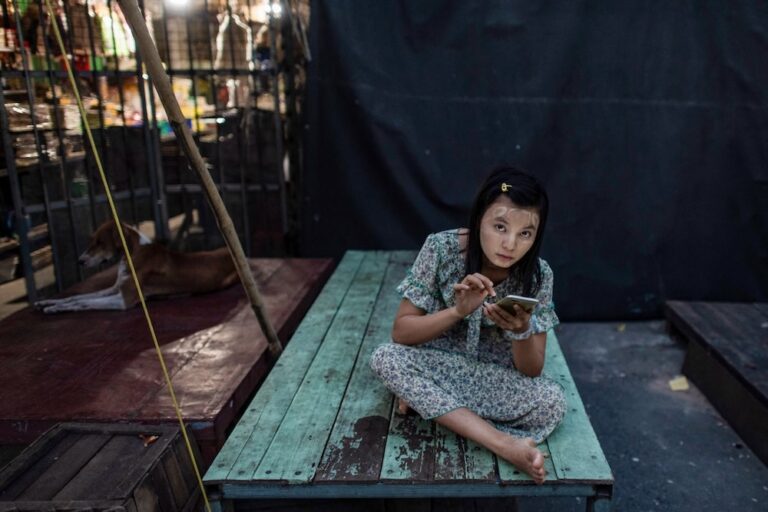(Mizzima/IFEX) – The websites of Mizzima News, an independent Burmese multi-media group based in New Delhi, have been crippled since 9 October 2008 when the group’s hosting server suspended the sites after they attracted several hacking attempts. Mizzima’s Canada-based hosting company, http://www.Hostpapa.ca, said it suspended the sites http://www.mizzima.com , http://www.mizzimaburmese.com , http://www.mizzima.tv , and http://www.mizzimaphoto.com […]
(Mizzima/IFEX) – The websites of Mizzima News, an independent Burmese multi-media group based in New Delhi, have been crippled since 9 October 2008 when the group’s hosting server suspended the sites after they attracted several hacking attempts.
Mizzima’s Canada-based hosting company, http://www.Hostpapa.ca, said it suspended the sites http://www.mizzima.com , http://www.mizzimaburmese.com , http://www.mizzima.tv , and http://www.mizzimaphoto.com after they attracted several hacking attempts and that it fears such attacks might harm other sites on the server. According to Mizzima’s technical staff, the hacking attempt is very sophisticated, well-timed and organized. The hacking file used has more than 4,000 lines of code and is adapted from a popular PHP Shell script.
Hostpapa’s technical support staff relayed the following notice to Mizzima: “Unfortunately, to protect the servers and the other customers on your server, we had to suspend your account.” While it is still difficult to trace who is behind the hacking attempts, Mizzima’s technical staff said the main attempt was found to have originated from Russia with cooperation from other hackers in Germany, France and India.
“This sort of well-organized attacking can’t be done by individuals but must instead be the disguised actions of an institution. Most probably in this case the military regime could be behind the scene,” said Sein Win, Mizzima’s managing editor.
Burma’s military junta, which has several of its technocrats training in IT-related fields in Russia and other parts of the world, has imposed a ban on Mizzima’s websites inside the country.
Though web users can still access the Mizzima sites by bypassing the government’s Internet filtering systems through the help of proxy servers and browsing, the junta has made it an offence to surf the site and users who do so could find themselves paying a heavy penalty if caught.
The junta has constantly blamed exiled media groups and foreign radio stations for producing information that reveals human rights violations in Burma, as well as the continued mismanagement of the country. In its campaign against foreign broadcasting stations after the September 2007 protests, the junta, in its mouthpiece “New Light of Myanmar” carried slogans that stated, “Sky full of liars attempting to destroy nation, BBC lying, VOA deceiving, RFA setting up hostilities. Beware, don’t be bought by those ill-wishers,” referring to the services of the UK’s British Broadcasting Corporation, the US’s Voice of America and Radio Free Asia.
This is the second instance in which Mizzima’s sites have been the target of hackers. In July 2008, Mizzima websites were crippled due to a Distributed Denial of Service (DDoS) attack. Mizzima, however, was not alone in suffering such attacks.
Also in July, the website of the Oslo-based Democratic Voice of Burma (DVB) suffered a similar DDoS attack, while in September, DVB, along with two other websites of exiled Burmese media groups – the Chiang Mai-based “Irrawaddy” and Bangkok-based “New Era Journal” – came under the crosshairs of a DDoS attack, causing inaccessibility to their sites on 24 September, immediately before the anniversary of the 2007 protests. “Mizzima is serving the people. We should all work together to sue or crack down against these criminals,” Sein Win said.
The Mizzima News Agency, run by Burmese journalists, is an independent Burmese multimedia group focusing on Burma and Burma-related news and issues. It maintains four different websites – mizzima.com, mizzimaburmese.com, mizzima.tv and mizzimaphoto.com.
Besides offering updated daily news both in English and Burmese, Mizzima also podcasts video stories on its mizzima.tv site – stories that are frequently picked up by other news organizations.
Mizzima, as a member of IFEX and as a partner of the regional organization Southeast Asian Press Alliance (SEAPA), has been producing media alerts on the violations of freedom of expression and the press in Burma for over a decade.


